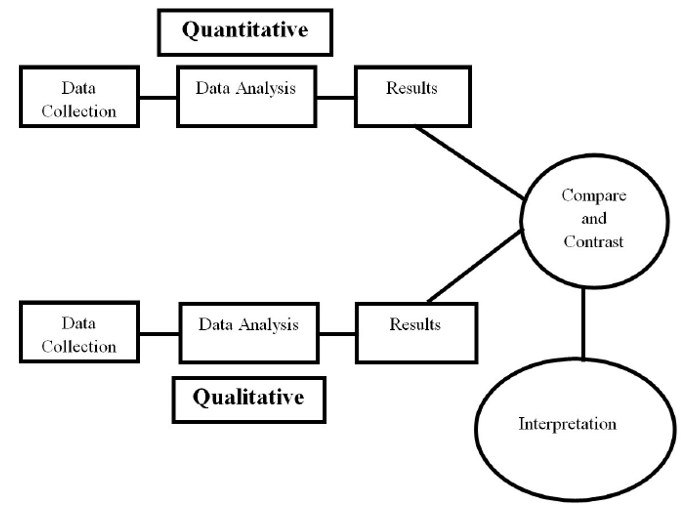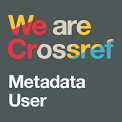Evaluation of the Implementation of Inclusive Education in Junior High Schools
DOI:
https://doi.org/10.51574/ijrer.v4i4.3884Keywords:
Evaluation, Inclusive Education, Inequality Evaluation Model, Junior High SchoolsAbstract
The objective of this study is to evaluate, measure, and prove the gaps in various components—design, installation, process, and product—so that it can provide information for improvement and development related to National Education Standards in building Inclusive Education in Junior High Schools in Tangerang. The evaluation model approach used in this study is the Discrepancy Evaluation Model, or Gap Evaluation Model, developed by Malcolm M. Provus. This research method is a mixed method, not only qualitative descriptive evaluation and quantitative, but also a combination of both. The evaluation subjects were 15 people, including the principal; the vice principal for curriculum, public relations, student affairs, and facilities and infrastructure; teachers; parents; and students. The results indicate that the design aspect, with a discrepancy of 28% in the management standard indicator, falls within the "Medium/Good" category, while the financing indicator, exhibiting a 44% discrepancy, also categorizes as "Medium/Good." Installation Aspect: A gap of 30% in the assessment indicator related to the discrepancy reference is classified as "Medium/Good," whereas a gap of 28% in the assessment facility and infrastructure indicator pertaining to the discrepancy reference is also categorized as "Medium/Good." The process indicator exhibits a 29% discrepancy, categorizing it as “Medium/Good,” while the content indicator shows a 40.4% discrepancy, also classified as “Medium/Good.” The product aspect reveals a 36% gap in the teacher and education personnel competency standard indicator, categorized as “Medium/Good,” while a 25% gap in the graduation competency indicator is also classified as “Medium/Good.”References
AlJufri, H., & Suprapto, C. H. (2014). Manajemen Sumber Daya Manusia Pendidikan. Jakarta: Smart Grafika.
Al Jufri, H. (2022). Organizational Climate And Teacher's Pedagogic Competence To Quality Of Service. Asian journal of management sciences & education, 11(2), 34-46.
Amaliani, R., Yunitasari, S. E., Fajriah, D., Salmiani, S., & Gustini, E. (2024). Sarana dan Prasarana Sekolah Inklusi †œKunci Sukses Pendidikan Inklusi. Aksara: Jurnal Ilmu Pendidikan Nonformal, 10(1), 361-366. http://dx.doi.org/10.37905/aksara.10.1.361-366.2024
Anaby, D. R., Campbell, W. N., Missiuna, C., Shaw, S. R., Bennett, S., Khan, S., ... & GOLDs (Group for Optimizing Leadership and Delivering Services). (2019). Recommended practices to organize and deliver school‐based services for children with disabilities: A scoping review. Child: care, health and development, 45(1), 15-27. https://doi.org/10.1111/cch.12621
Cheng, S. C., & Lai, C. L. (2020). Facilitating learning for students with special needs: a review of technology-supported special education studies. Journal of computers in education, 7(2), 131-153. https://doi.org/10.1007/s40692-019-00150-8
Comyn, P. J. (2018). Skills, employability and lifelong learning in the Sustainable Development Goals and the 2030 labour market. International Journal of Training Research, 16(3), 200-217. https://doi.org/10.1080/14480220.2018.1576311
De Beco, G. (2022). The right to ‘inclusive’education. The Modern Law Review, 85(6), 1329-1356. https://doi.org/10.1111/1468-2230.12742
Elfert, M. (2019). Lifelong learning in Sustainable Development Goal 4: What does it mean for UNESCO’s rights-based approach to adult learning and education?. International Review of Education, 65(4), 537-556. https://doi.org/10.1007/s11159-019-09788-z
Fajra, M., Jalinus, N., Jama, J., & Dakhi, O. (2020). Pengembangan model kurikulum sekolah inklusi berdasarkan kebutuhan perseorangan anak didik. Jurnal Pendidikan, 21(1), 51-63.
Fatayan, A., Hanafı, İ., Sarı, E., & Ghanı, A. R. A. (2019). The Implementation of School Based Management: School Committee Involvement in Islamic Schools. International E-Journal of Educational Studies, 4(7), 106-110. https://doi.org/10.31458/iejes.608131
Fatayan, A., Bachrudin, A. A., & Ayu, S. (2022). Evaluasi Efektivitas Sekolah Dasar dan Menengah Muhammadiyah Cabang Ciledug Kota Tangerang. Edukatif: Jurnal Ilmu Pendidikan, 4(3), 4258-4265.
Fatayan, A., Ghani, A. R. A., & Safrul, S. (2023). Implementasi Tenaga Pendidik Dan Tenaga Kependidikan Untuk Menunjang Dalam Kesiapan Perbaikan Hasil Akreditasi Sekolah Di Madrasah Tsanawiyah Dan Madrasah Aliyah. JMM (Jurnal Masyarakat Mandiri), 7(3), 2166. https://doi.org/10.31764/jmm.v7i3.14360
Francisco, M. P. B., Hartman, M., & Wang, Y. (2020). Inclusion and special education. Education Sciences, 10(9), 238. https://doi.org/10.3390/educsci10090238
Ghani, A. R. A., Fatayan, A., Azhar, N. C., & Ayu, S. (2022). Evaluation of technology-based learning in an Islamic school. World Transactions on Engineering and Technology Education, 20(3), 190-195.
Indrasti, M., & Jalil, F. (2019). The rule of law for the right to inclusive education in Indonesia. PADJADJARAN Jurnal Ilmu Hukum (Journal of Law), 6(3), 3. https://doi.org/10.22304/pjih.v6n3.a9
Kauffman, J. M., Hallahan, D. P., Pullen, P. C., & Badar, J. (2018). Special education: What it is and why we need it. Routledge.
Kenny, N., McCoy, S., & O’Higgins Norman, J. (2023). A whole education approach to inclusive education: An integrated model to guide planning, policy, and provision. Education Sciences, 13(9), 959. https://doi.org/10.3390/educsci13090959
Lemons, C. J., Vaughn, S., Wexler, J., Kearns, D. M., & Sinclair, A. C. (2018). Envisioning an improved continuum of special education services for students with learning disabilities: Considering intervention intensity. Learning Disabilities Research & Practice, 33(3), 131-143. https://doi.org/10.1111/ldrp.12173
Leroy, H., Buengeler, C., Veestraeten, M., Shemla, M., & Hoever, I. J. (2022). Fostering team creativity through team-focused inclusion: The role of leader harvesting the benefits of diversity and cultivating value-in-diversity beliefs. Group & Organization Management, 47(4), 798-839. https://doi.org/10.1177/10596011211009683
Lim, S. (2020). The capabilities approach to inclusive education: re-envisioning the individuals with disabilities education act’s least restrictive environment. Disability & Society, 35(4), 570-588. https://doi.org/10.1080/09687599.2019.1649119
Mansur, H., Utama, A. H., Mohd Yasin, M. H., Sari, N. P., Jamaludin, K. A., & Pinandhita, F. (2023). Development of inclusive education learning design in the era of society 5.0. Social Sciences, 12(1), 35. https://doi.org/10.3390/socsci12010035
Mfuthwana, T., & Dreyer, L. M. (2018). Establishing inclusive schools: Teachers’ perceptions of inclusive education teams. South African Journal of Education, 38(4), 1–10. https://doi.org/10.15700/saje.v38n4a1703
Minsih, M., Rusnilawati, R., & Mujahid, I. (2019). Kepemimpinan Kepala Sekolah Dalam Membangun Sekolah Berkualitas Di Sekolah Dasar. Profesi Pendidikan Dasar, 1(1), 29–40. https://doi.org/10.23917/ppd.v1i1.8467
Moscoso, S. C., Chaves, S. S., Vidal, M. P., & Argilaga, M. T. A. (2013). Reporting a program evaluation: Needs, program plan, intervention, and decisions. International Journal of Clinical and Health Psychology, 13(1), 58-66.
Nabila, M., & A Ghani, A. R. (2022). Implementasi Gaya Kepemimpinan Situasional Kepala Sekolah Memasuki Pembelajaran Tatap Muka. Jurnal Basicedu, 6(3), 5115–5123. https://doi.org/10.31004/basicedu.v6i3.3040
Ní Bhroin, Ó., & King, F. (2020). Teacher education for inclusive education: a framework for developing collaboration for the inclusion of students with support plans. European Journal of Teacher Education, 43(1), 38-63. https://doi.org/10.1080/02619768.2019.1691993
Rapp, A. C., & Corral-Granados, A. (2024). Understanding inclusive education–a theoretical contribution from system theory and the constructionist perspective. International Journal of Inclusive Education, 28(4), 423-439. https://doi.org/10.1080/13603116.2021.1946725
Rijcke, S. D., Wouters, P. F., Rushforth, A. D., Franssen, T. P., & Hammarfelt, B. (2016). Evaluation practices and effects of indicator use—a literature review. Research evaluation, 25(2), 161-169. https://doi.org/10.1093/reseval/rvv038
Saleh, M. (2022). Implementasi pendidikan karakter di sekolah inklusi. Hikmah: Journal of Islamic Studies, 17(2), 101-108. http://dx.doi.org/10.47466/hikmah.v17i2.198
Shogren, K. A., Gross, J. M. S., Forber-Pratt, A. J., Francis, G. L., Satter, A. L., Blue-Banning, M., & Hill, C. (2015). The perspectives of students with and without disabilities on inclusive schools. Research and Practice for Persons with Severe Disabilities, 40(4), 243–260. https://doi.org/10.1177/1540796915583493
Shutaleva, A., Martyushev, N., Nikonova, Z., Savchenko, I., Kukartsev, V., Tynchenko, V., & Tynchenko, Y. (2023). Sustainability of inclusive education in schools and higher education: Teachers and students with special educational needs. Sustainability, 15(4), 3011. https://doi.org/10.3390/su15043011
Thomas, J. C. (2016). Outcome assessment and program evaluation. The Jossey‐Bass Handbook of Nonprofit Leadership and Management, 444-474.
Webb, S., Holford, J., Hodge, S., Milana, M., & Waller, R. (2019). Conceptualising lifelong learning for sustainable development and education 2030. International Journal of Lifelong Education, 38(3), 237-240. https://doi.org/10.1080/02601370.2019.1635353
Widodo, S., Cletus, S., Ghani, A., Fatayan, A., Burmansah, B., Taridi, T., ... & Putra, P. H. (2020). Student character development: The implementation of the 2013 Indonesian school curriculum strategy. International Journal of Innovation, Creativity and Change, 13(10), 1058-1079.
Wirawan, W. (2016). Evaluasi (Teori, Model, Metodologi, Standar, Aplikasi, dan Profesi). RajaGrafindo Persada.
Zulaikha, S. (2023). Inclusive Education as An Effort to Deradicalize Religion in Indonesia. International Journal Pedagogy of Social Studies, 8(1), 35-46. https://doi.org/10.17509/ijposs.v8i1.53256

Downloads
Published
How to Cite
Issue
Section
License
Copyright (c) 2025 Muggia Usmi Eka Putri, Abd. Rahman A Ghani, Hamid Al Jufri

This work is licensed under a Creative Commons Attribution-ShareAlike 4.0 International License.









1.png)













